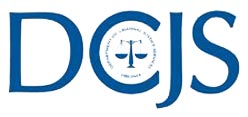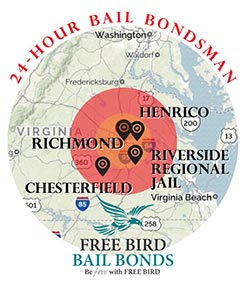Arrest Procedure
Arrest Procedure
Arrest Procedure
When a person is arrested in Virginia, they have to go through a typical process with the police. The process is regulated by Virginia Law.
Note: Always demand your right to have a lawyer or obtain council. The police might assume that you are hiding something or that you are guilty if remain silent, but this is not always how it is. This is why you should be well informed about your rights and stand up for them!
If the police feel that they have a reasonable and valid cause that you have gone against the law, they will take you into custody. If you are arrested, that does not mean that you are guilty. If you are in a situation that you can be arrested, then it would be smart to obey the police officer. Keep in mind that getting arrested is just as nerve-racking for the police officers as it is for the individual getting arrested. Becoming physical or verbal with the law would not be a wise idea and could result in extra charges.
When the police charge you for a crime, an official record is made with all the information about the charges and arrest, along with the identity of the suspect being charged. This involves taking their picture, noting down their full name, contact information, and address along with a fingerprint. During this entire procedure, personal belongings like clothes and property will be taken under custody and will be returned upon release. However, if any illegal items are found, they will not be given back.
It will be announced by the magistrate when to issue a bond and its amount. The measures that the magistrate is supposed to take are listed in Virginia Code § 19.2-121. The offences have been mentioned among the measures along with your character, the circumstances, and how long you have been residing in the region.
If the magistrate issues a secured bond, the bondsman might have to help you through the bail bond procedure. The suspect will have to stay in jail until the date of the trial until someone posts his bail bond.
The arraignment will be the first court date and will take place in the General District Court. The charges will be read formally to the defendant who will be asked to submit an appeal of not guilty, guilty, or no contest. A no contest appeal means confessing to the facts in the case but not claiming to be guilty. An advantage of a no contest appeal is that it can help avoid having a guilty plea from being used against the defendant in the case later on. It is also utilized as a plea bargain at times.
After the arraignment, the next court date will depend on the kind of charges.
For any transgression charges, the next court date will be the trial date. In other cases, like drug cases, the next court date will be to hear about the proof of breath tests, blood tests, and other proof of the kind.
For any felony charges, a preliminary hearing will take place and then a Grand Jury hearing will be held.
The preliminary hearings for all felony cases and misdemeanor cases take place in District Courts, whereas all cases are focused on by a judge, not a jury, in General District Courts.
Authority for juvenile felony cases and felony criminal cases has been given to the Circuit Court.
This hearing takes place to help understand if there is a valid reason against the accused suspect to have the case extended to a grand jury.
This will help understand if the case should be taken to a trial. The jury allows the Commonwealth’s lawyer to present the evidence which reveals that the accused suspect committed the action that he or she is charged with. The jury will then decide if there is a possible reason to issue indictment, a document charging the defendant with the felony, against the suspect.
The cases that are heard by the grand jury are usually issued such documents. Once they are issued, the cases have to go to jury trials.
The General District Court usually hears the trials for any misdemeanor offenses. The judge rules the cases after hearing the evidence without the help of a jury.
A jury is chosen with the input of your lawyer. This is known as “Voir Dire.” Once the jury has been selected, the Commonwealth lawyer and the defense lawyer will provide their opening statements to the jury. The trial will then begin! The case is presented by prosecution with evidence being introduced with testifying witnesses. Once the prosecution’s case has been completed, the defense is allowed the opportunity to share its evidence. The jury will then discuss and decide upon the case.
Tel : (804) 896-3259
Email : info@freebirdbailbonds.com



Virginia Department of Criminal Justice System DCJS License # 99-313965

